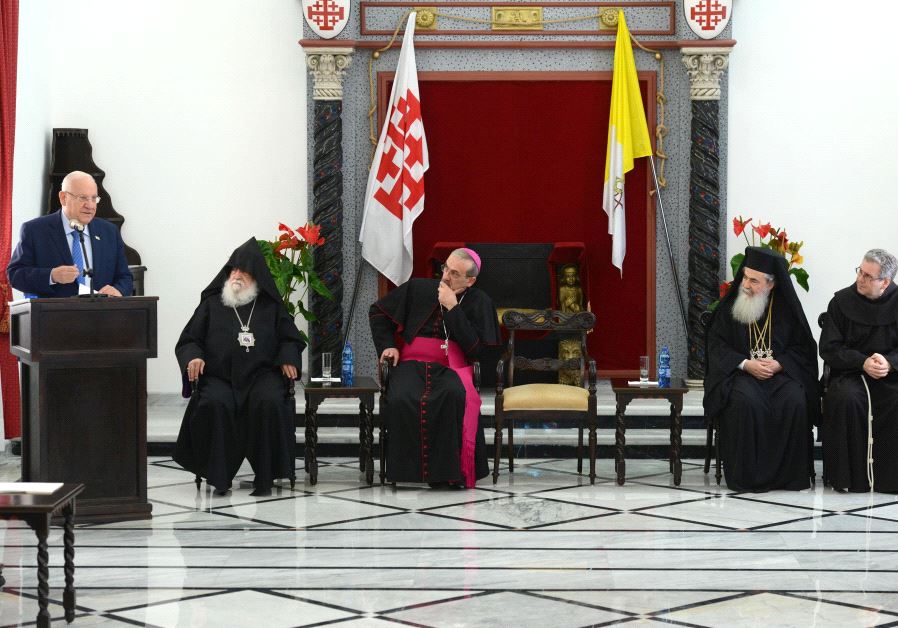Rivlin: Plight of Christians in Middle East a ‘stain on humanity’
“I say to you here, our Christian brothers of Jerusalem, our thoughts are with you at this difficult time,” said the president.
 President Rivlin visits Latin Patriarchate in Jerusalem in honor of Easter(photo credit: Mark Neiman/GPO)Updated:
President Rivlin visits Latin Patriarchate in Jerusalem in honor of Easter(photo credit: Mark Neiman/GPO)Updated: